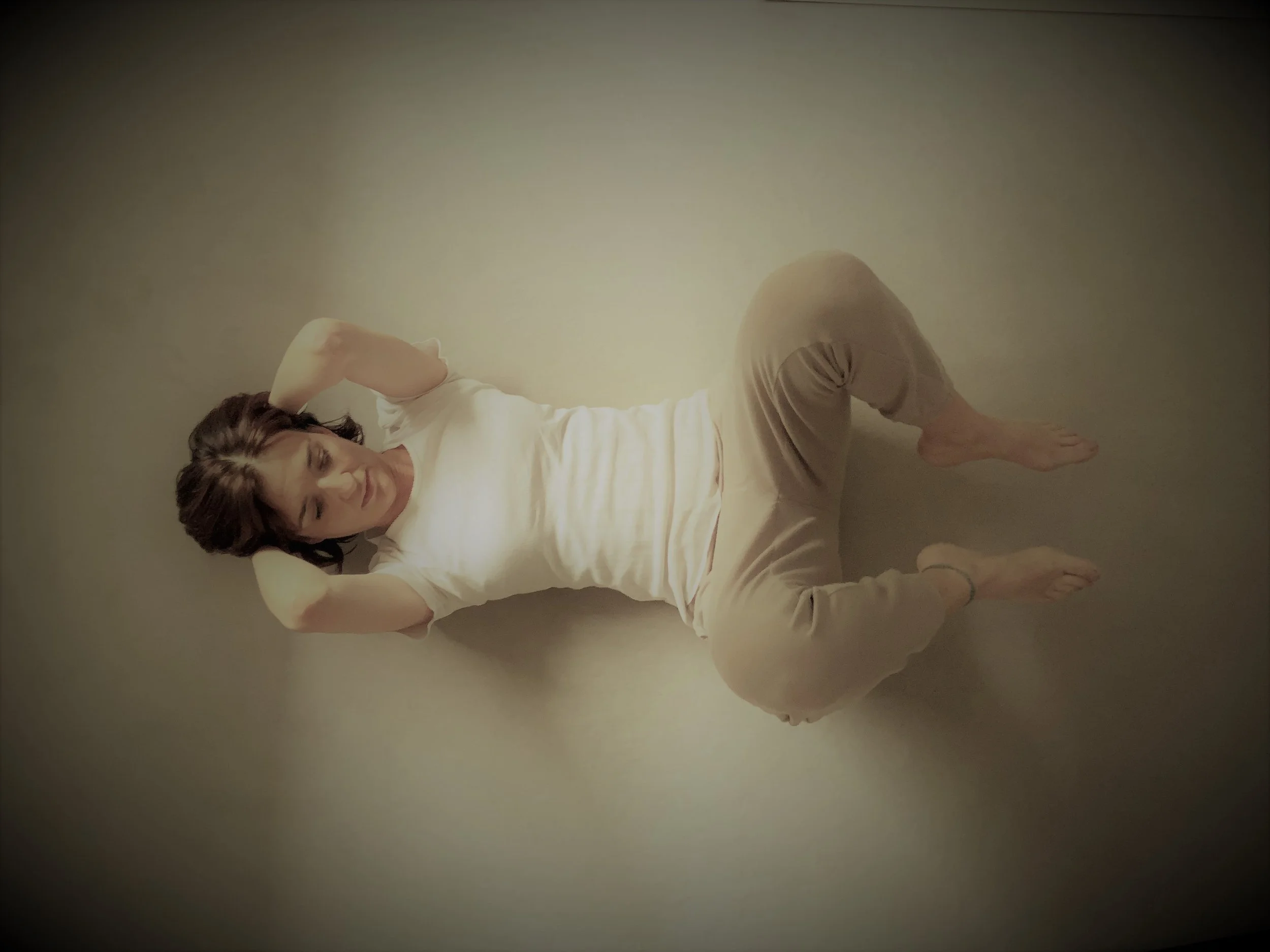Francesca Bullo
I have always been passionate about mind-body practices and philosophies, art, foreign languages, and cultures. I have worked for years in the field of translation and language learning, especially in informal (non-scholastic) contexts. I thus had the opportunity to deepen my studies on art-and movement-based forms of learning, discovering the immense potential of the latter also thanks to the Feldenkrais Method®, which I have been practicing for years and teaching regularly since 2019. Today I teach somatic education through the Feldenkrais Method® in various locations (individual sessions and collective lessons) and I offer workshops on embodied and creative approaches to language learning.
Since 2022 I have been offering somatic education courses through the Feldenkrais Method® also at the Psychiatric Rehabilitation Service of the Bolzano Health Authority. At the same time, I continue to deal with training proposals and in-depth study of new bodily ways of approaching language teaching.
How I came to the Feldenkrais Method®
In the really difficult moments of life we find ourselves face to face with ourselves, with no way out in front of uncomfortable and thorny questions, which perhaps we have postponed for too long. We've all been through it more or less at a certain age and I've certainly not been immune. I always find it interesting to observe how each of us reacts in these situations, because I think there is a lot to learn about the infinite variations of human nature.
When I have experienced painful and dark moments, I have sought help and comfort from, among others, the great spiritual masters and the arts. Both teach us a fundamental and inescapable truth, and that is that pain and suffering, whether physical or mental, are the great portal to our transformation and growth. Come to think of it, we could say that this is not a great discovery, but what, in my opinion, is worth remembering is that this awareness must always accompany us, not only in the difficult moment we are experiencing. What I mean is that the great value of life lies precisely in its dimension of growth and expansion, that is, in our ability to know deeply who we are. In short, we must begin to consider this aspect as a founding value, if not the ultimate meaning of our lives, both for the purposes of our self-realization (and therefore of our health), and for the purposes of the ethical and spiritual progress of humanity.
All this is all the more important if we consider the era in which we are living, torn by deep tensions and serious crises; The very rapid emergence of new paradigms in every sector of our lives, from the socio-cultural to the political-economic through education, science and technology is there for all to see, and this requires us to reflect seriously.
It is in this general rethinking of the human experience and, not least, of parenthood, that I have reshaped my philosophy of life by deciding to devote myself to studies on human potential, on the development of the person and on forms of informal learning, strengthened by my humanistic studies, my experiences and my passions. The approach I chose, the somatic one, was largely dictated by an unexpected but fundamental encounter in my life, the one with the Feldenkrais method®, a method of somatic education that seemed to me the perfect synthesis between science and spirituality and which, precisely for this reason, seems to me more complete and refined than others, but at the same time easily accessible to everyone. Moshé Feldenkrais was a scientist of Jewish origin who was able to combine scientific disciplines with oriental body techniques, developing, from a knee pain from which he suffered, a method capable of promoting awareness of psychomotor processes, and therefore the organic unity of mind and body, through movement.
In this approach I found a rare depth and originality that taught me to feel somatically, that is, from within, the wonderful complexity and richness of what it means to be "human". I believe that it is one of the deepest and most refined forms of self-knowledge, and therefore of spirituality, that I have ever experienced: at the end of each lesson I invariably find not only well-being and lightness, but above all trust in that organic intelligence that resides in each of us and that seems to gradually emerge from oblivion with growing self-awareness. Once rediscovered, it transforms into vitality and joie de vivre.
Nothing is permanent about our behavior patterns except our belief that they are so.
— Moshe Feldenkrais


